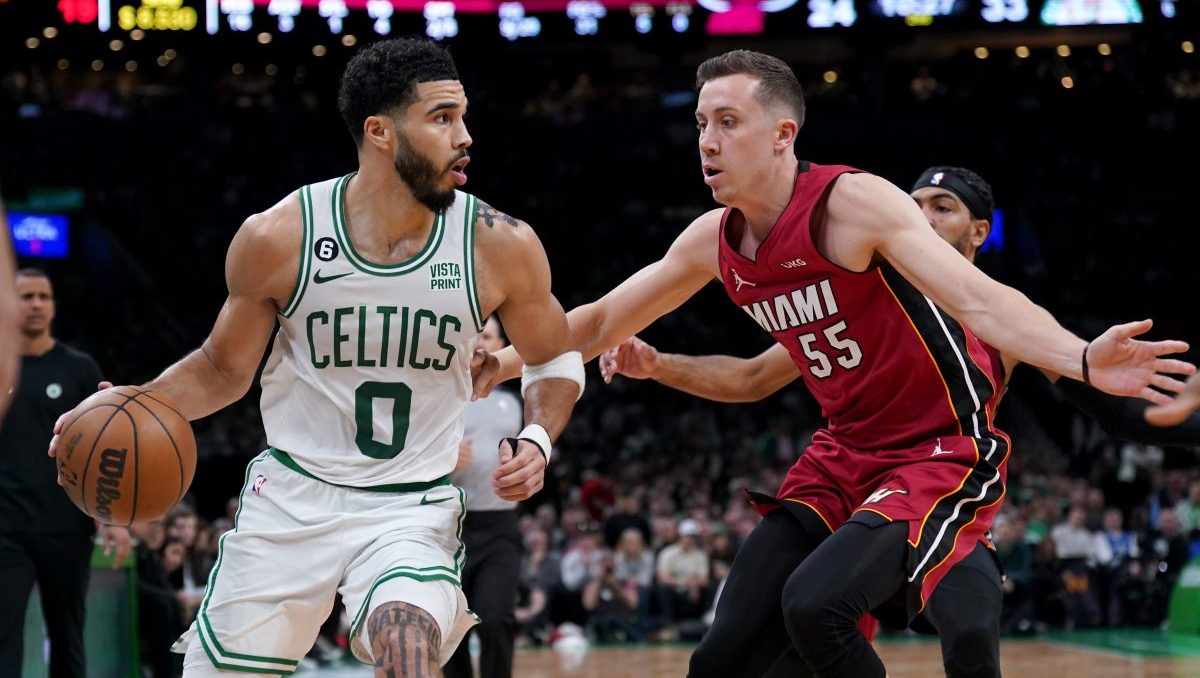Seven starts into his career in Boston, David Price hasn't seemed like the ace Red Sox fans were expecting.
Through his first seven outings, Price has posted a 6.75 ERA. After his start on Saturday, his 31 earned runs led the majors.
"This has definitely been the toughest stretch," Price said after allowing six runs through 4.2 innings against the Yankees. "My first seven starts this season, I've sucked. It's not fun for me. I don't enjoy it. I've got to get better."
The actual numbers, however, disagree - results notwithstanding, Price has not sucked.
Fielding-independent pitching, or FIP, takes a look at what a pitcher's ERA might be without park effects and with league-average defense being played around him. While Price's actual ERA is abysmal, his FIP of 2.93 is quite good.
Through his first seven starts with the Red Sox, Price has struck out 11.5 batters per nine innings - the best mark in the American League, trailing just the Marlins' Jose Fernandez in all of baseball. He is walking a few more batters than he usually does, allowing 2.6 walks per nine - just a notch worse than his very strong career mark of 2.3. Price has always been somewhat prone to the long ball. He is currently allowing 0.9 homers per nine, on par with his 0.8 career rate.
That leaves the hits. Price has given up 45 of them so far, tied for the sixth most in the MLB. If the season ended in early May, the 9.8 hits he's allowing per nine innings would be the most in his career by more than a full integer (he allowed 8.6 back in 2013).
Sports
Patriots, Red Sox, Bruins, Celtics and more
Now here's the good news - this is almost entirely a case of bad luck.
This might be tough to accept, but hits that don't leave the ballpark are not predictable. Yes, hitters who make good contact will have better batting averages than hitters who don't. But where a ball lands - whether it finds the gap and drops in for a hit, whether fielders are getting to the balls that should be in their ranges - is something that fluctuates over time but typically regresses to the mean.
For that, we look at batting average on balls in play (BABIP). This statistic excludes strikeouts, walks and homers, and can be used to determine how heavily luck is playing into results. Across the board, approximately 30 percent of balls put in play drop in for hits (for a BABIP of .300).
Some hitters who tend to line balls, and some who have greater speed, tend to have higher career BABIP numbers. Some pitchers who get hitters to put the ball on the ground more frequently have lower career BABIP numbers against them.
From his debut in 2008 through the end of 2015, batters hit just .286 against Price on balls in play. So far in 2016, they have hit .373.
.373!
That's astronomical. That is entirely why Price has "sucked." It's almost a full clip higher than his career mark. And the thing is, in a small sample size, that's not even rare.
Price's BABIP against is even more unsustainably bad than Steven Wright's (.247) is unsustainably good.
Comcast SportsNet New England's Sean McAdam, who does believe there is cause for concern with Price, highlights a troubling point - his velocity is down, and it's down across his full repertoire of pitches. His career fastball velocity is 94.2, but he is hitting 91.8 this season.
McAdam notes that Price's best pitch is his changeup, and that his fastball being slower makes for a smaller difference between the two pitches. While Price's changeup velocity of 83.3 this season is also below his career average velocity of 84.4, the dips in pitch speeds are worrisome.
But again - it's seven starts, and Price's peripherals have remained awesome.
It's easy to say that a pitcher has sucked when his ERA is close to 7. It's even easier to say that when the pitcher has just inked a 7-year contract for $217 million.
But pitchers who lead their leagues in strikeouts don't suck. Especially when they lead their leagues in strikeouts while keeping the walks and homers down.
Price and Wright will both regress and look more like they have across their careers - in Price's case, that's an ace.



